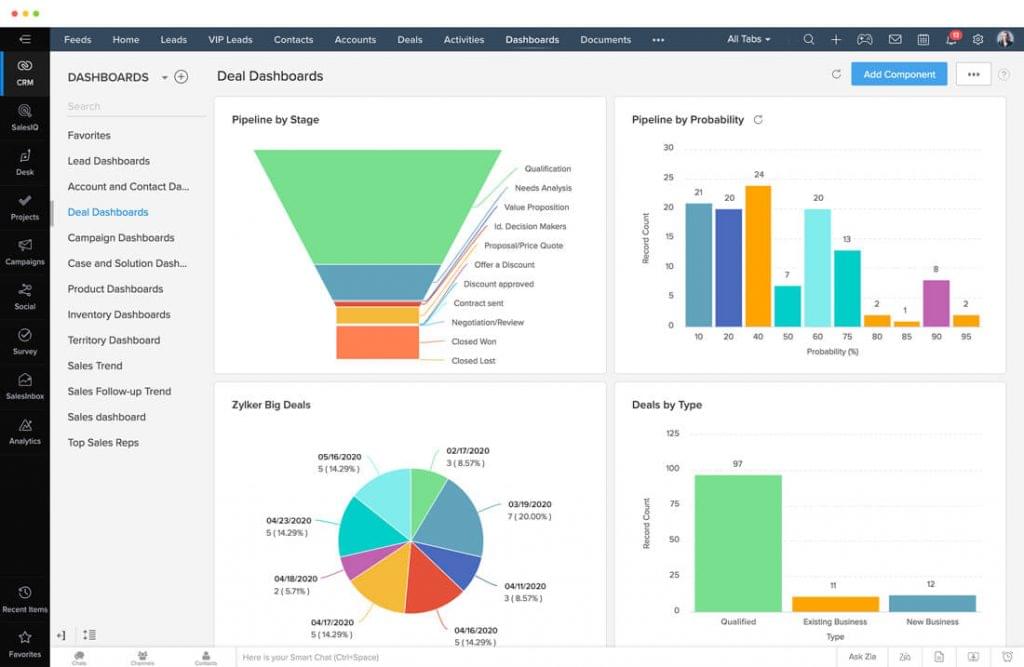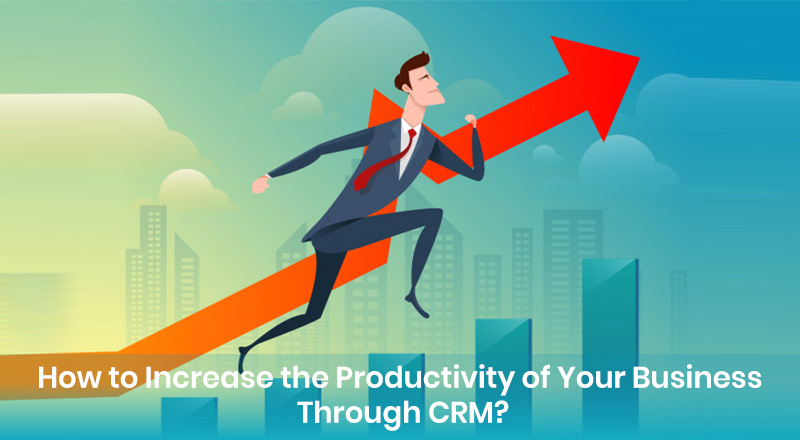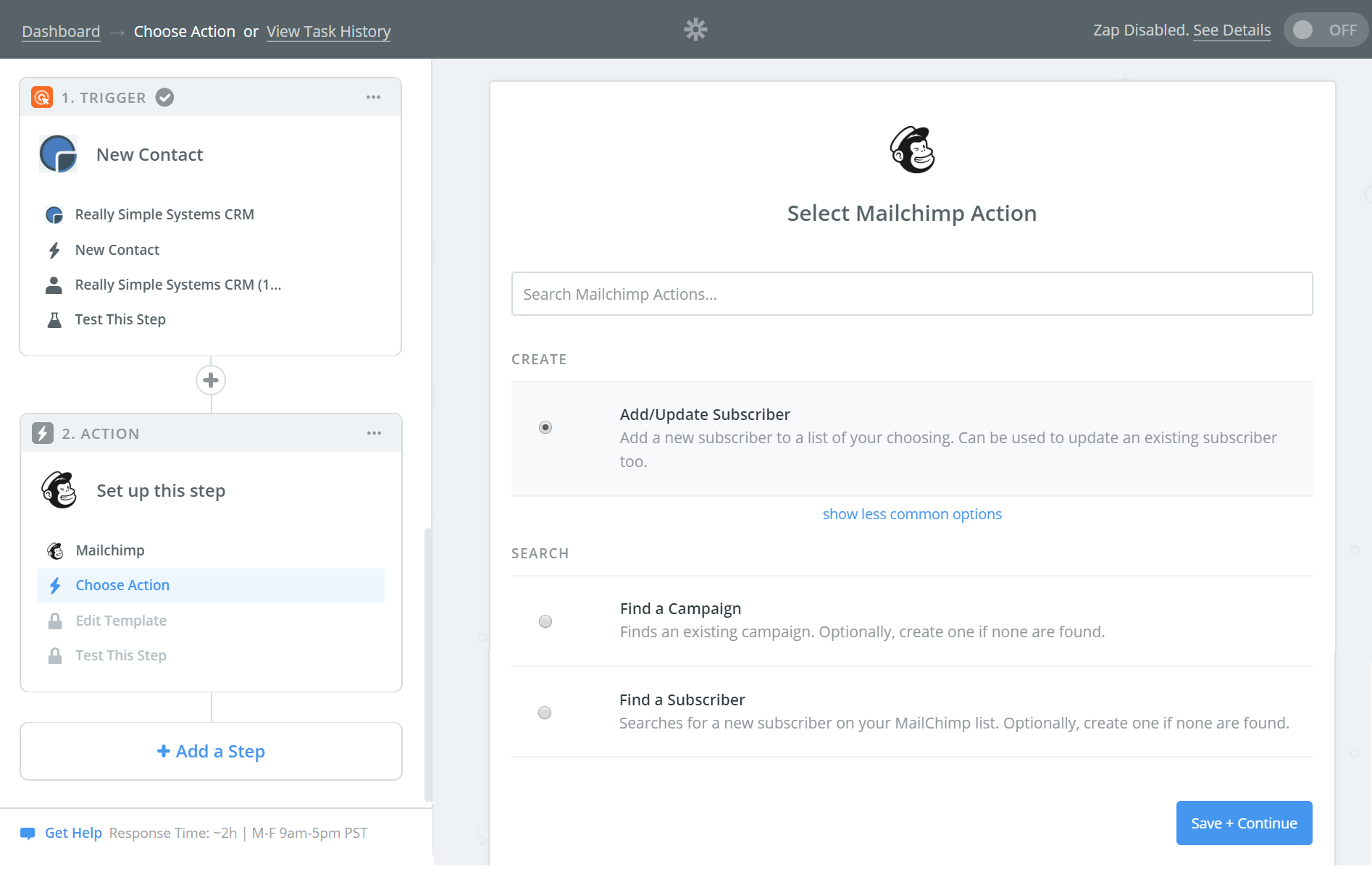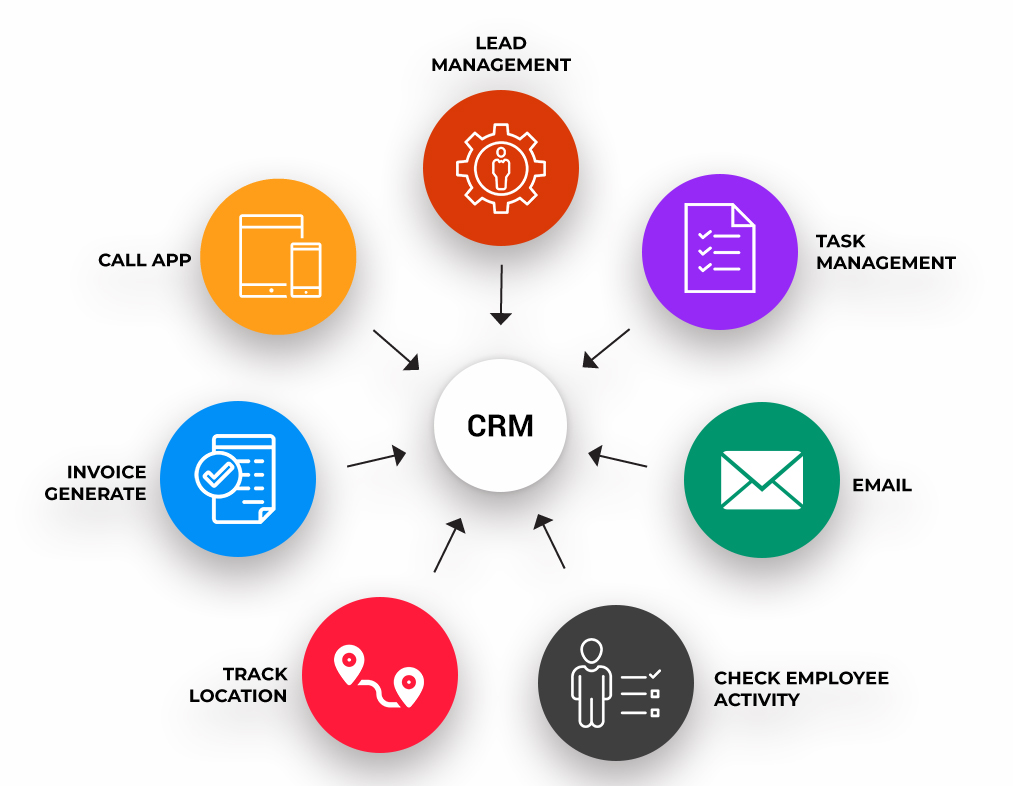Scaling Up with CRM: A Small Business Guide to Sustainable Growth
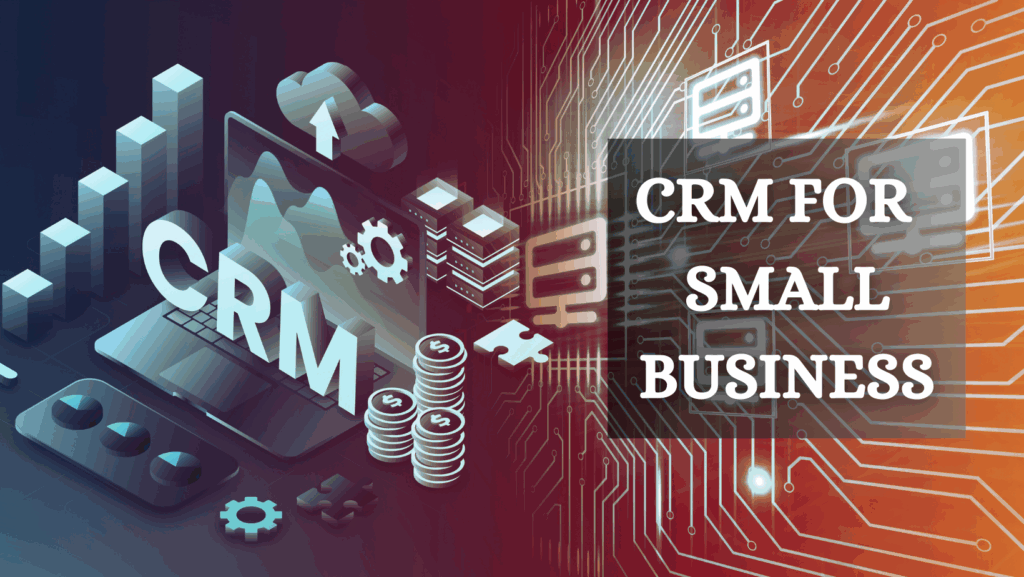
Scaling Up with CRM: A Small Business Guide to Sustainable Growth
Running a small business is a rollercoaster. There are highs, lows, and plenty of unexpected turns. Amidst the chaos of daily operations, the quest for growth often looms large. One of the most powerful tools a small business can leverage to fuel this growth is Customer Relationship Management (CRM) software. But not just any CRM – you need a system that can scale with you. This guide dives deep into the world of CRM for small businesses, focusing on scalability, the core principle that ensures your investment pays off as your business expands. We’ll explore what scalability means in the context of CRM, why it’s so crucial, and how to choose the right system to support your ambitions.
What is CRM and Why Does Your Small Business Need It?
Before we get into scalability, let’s establish the fundamentals. CRM, at its heart, is a system for managing your interactions with current and potential customers. It’s a centralized hub where you store customer data, track communications, and automate key processes. Think of it as the brain of your customer-facing operations.
For a small business, a CRM offers a multitude of benefits:
- Improved Customer Relationships: By centralizing customer data, you gain a 360-degree view of each customer. This allows you to personalize interactions, anticipate needs, and build stronger relationships.
- Increased Efficiency: CRM automates repetitive tasks, such as data entry and email marketing, freeing up your team to focus on more strategic initiatives.
- Enhanced Sales Performance: CRM provides sales teams with the tools they need to manage leads, track progress, and close deals more effectively.
- Better Data Analysis: CRM provides valuable insights into customer behavior, sales trends, and marketing campaign performance, enabling data-driven decision-making.
- Streamlined Communication: With a CRM, all customer interactions are logged in one place, ensuring everyone on your team is on the same page.
In essence, CRM helps you work smarter, not harder. It empowers you to deliver exceptional customer experiences, drive sales, and ultimately, grow your business.
The Importance of Scalability in CRM
Now, let’s talk about scalability. Scalability, in the context of CRM, refers to the system’s ability to handle your growing needs as your business expands. A scalable CRM can accommodate an increasing number of users, data, and transactions without compromising performance or functionality. It’s the ability to adapt and evolve with your business.
Why is scalability so critical? Here are a few key reasons:
- Avoids System Overload: A non-scalable CRM can quickly become overwhelmed as your customer base and data volume grow. This can lead to slow performance, system crashes, and data loss – all of which can severely impact your operations.
- Supports Business Growth: A scalable CRM allows you to onboard new users, add new features, and integrate with other systems as your business expands. It grows with you, rather than holding you back.
- Protects Your Investment: Investing in a CRM is a significant decision. A scalable system ensures that your investment remains valuable over time, as it can adapt to your changing needs. You won’t need to constantly switch systems, which can be costly and disruptive.
- Maintains Data Integrity: As your data volume increases, a scalable CRM ensures that your data remains accurate, consistent, and accessible. It can handle large datasets without compromising data integrity.
- Ensures Long-Term Viability: Choosing a CRM that can scale is a forward-thinking decision. It ensures that your CRM system will continue to meet your needs for years to come, supporting your long-term business goals.
In short, scalability is not just a nice-to-have feature; it’s a necessity for any small business that aims to grow and succeed in the long run. It’s the foundation upon which you can build a robust and sustainable customer relationship management strategy.
Key Features of a Scalable CRM for Small Businesses
So, what should you look for in a scalable CRM? Here are some essential features to consider:
- Flexible Data Storage: The CRM should be able to handle a growing volume of data without slowing down. This may involve cloud-based storage, which can easily be scaled up as needed.
- User Management and Permissions: The system should allow you to add and manage users easily, and assign different levels of access and permissions based on their roles.
- Integration Capabilities: The CRM should integrate seamlessly with other tools you use, such as email marketing platforms, accounting software, and e-commerce platforms. This will ensure data flows smoothly between systems.
- Customization Options: The ability to customize the CRM to fit your specific business processes is crucial. Look for a system that allows you to create custom fields, workflows, and reports.
- Automation Features: Automation is key to efficiency. The CRM should automate repetitive tasks, such as lead nurturing, email campaigns, and task assignments.
- Mobile Accessibility: With a mobile-friendly CRM, your team can access customer data and manage their tasks from anywhere, at any time.
- Reporting and Analytics: Robust reporting and analytics capabilities are essential for gaining insights into your customer data and sales performance.
- Scalable Pricing Plans: The pricing model should be flexible and allow you to scale up or down based on your needs. Avoid systems with rigid pricing structures that don’t accommodate growth.
- Excellent Customer Support: Look for a vendor that offers comprehensive customer support, including training, documentation, and responsive assistance. This is important when implementing and scaling the system.
- Cloud-Based Architecture: Cloud-based CRM systems are inherently more scalable than on-premise solutions. They offer greater flexibility and require less IT infrastructure.
By focusing on these features, you can ensure that the CRM you choose will be able to support your business as it grows and evolves.
Choosing the Right CRM: A Step-by-Step Guide
Selecting the right CRM is a crucial decision. Here’s a step-by-step guide to help you make the right choice:
- Define Your Needs and Goals: Before you start looking at CRM systems, clearly define your business goals and requirements. What do you want to achieve with a CRM? What specific features do you need? Consider your sales process, marketing strategies, and customer service operations. This will help you narrow down your options.
- Assess Your Current Infrastructure: Evaluate your existing technology infrastructure. Do you have a dedicated IT team or will you need a CRM that’s easy to set up and manage? Consider your existing software and platforms, and ensure the CRM you choose integrates with them.
- Research CRM Vendors: Explore various CRM vendors and their offerings. Read online reviews, compare features, and consider pricing plans. Look for vendors that specialize in small businesses and offer scalable solutions.
- Create a Shortlist: Narrow down your choices to a shortlist of 3-5 CRM systems that seem like a good fit for your needs.
- Request Demos and Trials: Request demos from the shortlisted vendors to see their systems in action. Take advantage of free trials to test the CRM’s features and functionality.
- Evaluate Scalability: During the demo and trial, pay close attention to the system’s scalability. Ask questions about how the CRM handles increased data volume, user growth, and integration with other systems. Ask about the vendor’s plans for future development and scalability.
- Consider Pricing and Support: Evaluate the pricing plans and customer support offered by each vendor. Ensure the pricing is transparent and scalable, and that the vendor offers the level of support you need. Consider the long-term costs of the CRM, including implementation, training, and maintenance.
- Check Integrations: Ensure the CRM integrates with the other tools and platforms you use, such as email marketing software, accounting software, and e-commerce platforms. Smooth integrations will streamline your workflow and improve data flow.
- Get Feedback from Your Team: Involve your team in the decision-making process. Get their feedback on the shortlisted CRM systems, as they will be the ones using the system daily. Consider their needs and preferences.
- Make a Decision and Implement: Based on your research and evaluation, choose the CRM that best meets your needs and goals. Plan your implementation carefully, including data migration, user training, and system configuration. Provide comprehensive training to your team to ensure they can effectively use the new CRM system.
By following these steps, you can confidently select a CRM that will support your business growth and help you build stronger customer relationships.
Popular CRM Systems for Small Businesses (and Their Scalability)
Several CRM systems are popular among small businesses. Here’s a look at some of the top contenders and their scalability capabilities:
- HubSpot CRM: HubSpot offers a free CRM that’s a great starting point for small businesses. It’s known for its user-friendliness and comprehensive marketing, sales, and customer service features. HubSpot’s paid plans offer increased functionality and scalability as your business grows. They offer various tiers that allow you to add more users, storage, and features as needed.
- Zoho CRM: Zoho CRM is a versatile and affordable option for small businesses. It offers a wide range of features, including sales force automation, marketing automation, and customer support. Zoho CRM is highly scalable, with various pricing plans and add-ons to accommodate your growth. They provide robust customization options and integrations to scale your system as needed.
- Salesforce Sales Cloud: Salesforce is a leading CRM platform, offering a comprehensive suite of features for businesses of all sizes. While it might seem daunting for small businesses, Salesforce offers various editions, including Sales Cloud Essentials, specifically designed for smaller teams. Salesforce is extremely scalable, allowing you to add users, features, and integrations as your business grows. Salesforce’s AppExchange offers a vast ecosystem of apps to extend the functionality of your CRM.
- Pipedrive: Pipedrive is a sales-focused CRM that’s known for its simplicity and ease of use. It’s a great option for small businesses that prioritize sales pipeline management. Pipedrive is scalable, with various pricing plans and features to accommodate your growth. It offers integrations with other popular tools.
- Insightly: Insightly is a CRM that offers a user-friendly interface and a wide range of features for sales, marketing, and project management. It’s a good option for small businesses that need a CRM to manage various aspects of their business. Insightly offers scalable plans with increased storage, users, and features as your business grows.
When evaluating these and other CRM systems, pay close attention to their scalability features, pricing plans, and customer reviews. Consider the long-term implications of each system and choose the one that best aligns with your business goals and growth plans.
Tips for Successfully Scaling Your CRM
Choosing a scalable CRM is just the first step. Here are some tips to ensure your CRM implementation and scaling efforts are successful:
- Plan for Growth: Before implementing your CRM, create a plan for how you’ll use it as your business grows. Consider your future needs, such as adding new users, integrating with new systems, and managing a larger customer base.
- Start Small and Iterate: Don’t try to implement every feature of your CRM at once. Start with the core features and gradually add more functionality as needed. This iterative approach allows you to learn and adapt as you go.
- Clean and Organize Your Data: Before importing your data into the CRM, clean and organize it. Remove duplicates, correct errors, and standardize your data format. This will ensure your data is accurate and reliable.
- Provide Thorough Training: Invest in comprehensive training for your team. Ensure everyone understands how to use the CRM and its features. Provide ongoing training as new features are added or processes change.
- Customize the System: Tailor the CRM to fit your specific business processes. Customize fields, workflows, and reports to meet your unique needs. This will improve efficiency and user adoption.
- Integrate with Other Systems: Integrate your CRM with other tools and platforms you use, such as email marketing software, accounting software, and e-commerce platforms. This will streamline your workflow and improve data flow.
- Monitor Performance and Adapt: Regularly monitor the performance of your CRM and make adjustments as needed. Analyze your data to identify areas for improvement and optimize your processes.
- Seek Expert Advice: Consider working with a CRM consultant or implementation partner. They can provide guidance and support throughout the implementation and scaling process.
- Regularly Review and Update: As your business evolves, regularly review and update your CRM configuration to ensure it continues to meet your needs. This might include adding new features, adjusting workflows, or integrating with new systems.
- Prioritize User Adoption: A CRM is only as effective as the people who use it. Foster a culture of user adoption by providing training, support, and incentives for using the system. Celebrate successes and address any issues promptly.
By following these tips, you can maximize the value of your CRM and ensure it supports your business growth.
Troubleshooting Common CRM Scalability Issues
Even with a scalable CRM, you may encounter some challenges as your business grows. Here are some common scalability issues and how to troubleshoot them:
- Slow Performance: If your CRM is running slowly, it may be due to a large volume of data, too many users, or inefficient workflows. Try optimizing your database, reducing the number of users logged in simultaneously, and streamlining your workflows.
- Data Overload: As your data volume grows, it can become difficult to manage. Implement data cleansing and archiving strategies to keep your data organized and manageable. Consider using segmentation and filtering to focus on the most relevant data.
- Integration Problems: If your CRM isn’t integrating smoothly with other systems, it may be due to compatibility issues or incorrect configuration. Review your integration settings and ensure all systems are properly connected.
- User Adoption Issues: If your team isn’t using the CRM effectively, it may be due to a lack of training or a cumbersome interface. Provide additional training, simplify your workflows, and solicit feedback from your team.
- Security Concerns: As your business grows, you’ll need to ensure your CRM data is secure. Implement strong security measures, such as multi-factor authentication, access controls, and data encryption.
- Reporting Difficulties: If you’re struggling to generate the reports you need, it may be due to a lack of customization or a complex reporting engine. Customize your reports and dashboards to meet your specific needs.
- Lack of Feature Support: As your business evolves, you may need new features or functionalities. If your CRM doesn’t offer the features you need, consider upgrading to a higher plan or exploring third-party integrations.
By proactively addressing these issues, you can keep your CRM running smoothly and ensure it continues to support your business growth.
Conclusion: CRM Scalability – Your Path to Sustainable Growth
Choosing and implementing a scalable CRM is a strategic investment that can significantly impact your small business’s growth trajectory. By understanding the importance of scalability, carefully selecting a CRM, and following the best practices outlined in this guide, you can create a robust customer relationship management system that will support your ambitions for years to come.
Remember that scalability isn’t just about the technical capabilities of the system; it’s about building a foundation that allows your business to adapt, innovate, and thrive. It’s about empowering your team to build stronger customer relationships, streamline processes, and ultimately, achieve sustainable growth. So, take the time to choose the right CRM, plan your implementation carefully, and invest in the necessary training and support. The rewards – a thriving business built on strong customer relationships – will be well worth the effort.
Embrace the power of a scalable CRM, and watch your small business flourish.

